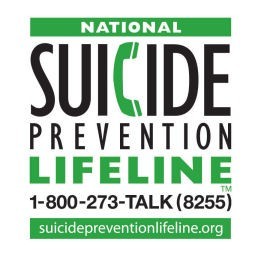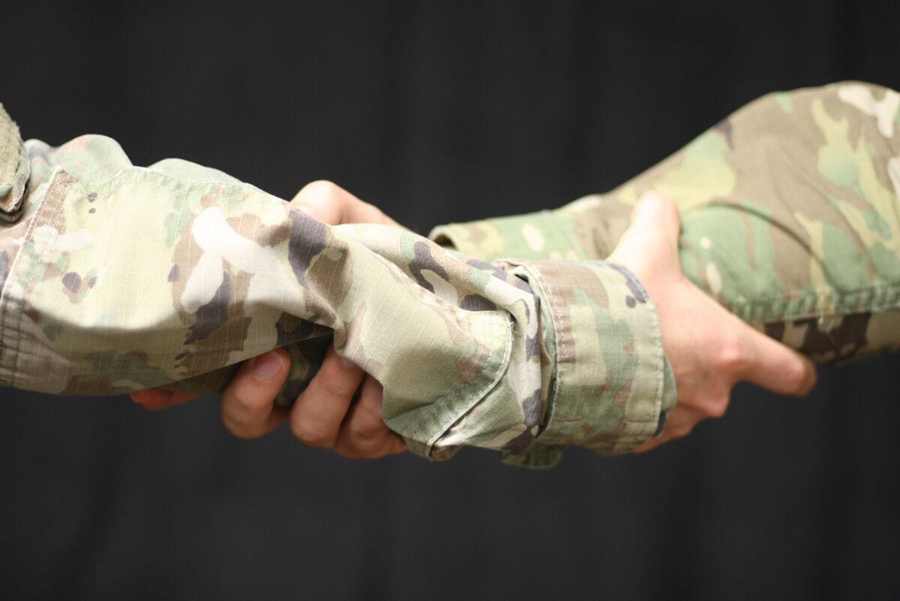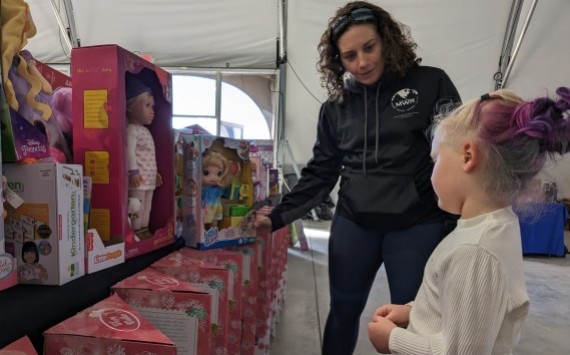“It doesn’t matter what I’m doing that day in my office, if Soldiers come and knock on my door, I say, ‘Yes. How can I help you?’”
This was the mindset of Moana Nelson, the first sergeant of Headquarters and Headquarters Company, 48th Chemical Brigade until she handed the guidon to her replacement last week after a successful tour leading chemical Soldiers at the Great Place. She believes approachable leaders in the ranks are a vital aspect of the overall suicide prevention effort.
“Having the first sergeant rank should not intimidate anybody from coming to you, because that is your job, to help Soldiers,” Master Sgt. Nelson said. “So whatever I’m doing, if I’m on the computer, I will divert my attention from the computer and turn my chair to where I’m looking at them. Then I’ll tell them to go ahead and have a seat Ö whatever issue, whether it be family, leaders in their shop or whatever, I’m there to listen.”
Nelson, a former Applied Suicide Intervention Skills Training instructor, emphasized the need for leaders at every level to have an open door, listen, and providing Soldiers a place to vent. She said the time spent is rewarding both professionally and personally.
“It gives me much pleasure when they leave and they’ve got a smile on their face,” Nelson said. “I know I made an impact on that individual. It just fulfills me.”
Kenya King, a Suicide Prevention Program manager for Fort Hood, said efforts like Nelson’s help reduce the stigma for asking for help when a Soldier is truly in a time of need.
“It’s very imperative that the military leaders make themselves available,” King said. “They make themselves approachable and then maybe show some openness there. Soldiers can feed off of that, and they can learn from that. And some of the things that you do could directly influence the way a Soldier does something when they become that leader.”
King and Nelson agree that openness and humility in military leaders can have a huge positive effect on their formations when it comes to creating an environment where asking for help is seen as a sign of strength rather than weakness.
“I think one of the biggest ways that (leaders) can help in that reduction is by admitting some of that themselves,” King said. “If they’re able to show that they went through something, their Soldiers can look at them in a different light. When you know that someone has went through some financial hardships, and they were able to get ahead of it and get their credit fixed, or something of that nature, it may give hope to someone else who is going through that same thing.”

Nelson agreed. She said she had a young sergeant in her company who was going through relationship problems. Nelson shared her own life experiences with the sergeant with the hopes of making a better connection with that Soldier.
“She would quickly come into my office to talk about her ex-husband,” Nelson shared. “‘He did this, and did that.’ She would just vent and vent. And then I would tell her about my experiences, as well, to let her know that it’s okay. I have gone through those problems in my life as well. And it’s about getting through it. And then, you know, making those situations make you stronger in the end.”
Nelson described her leadership style with one word: humility. She said there is a time to be “hooah and hardcore,” but leaders can’t be that way all day every day.
“Humility is number one,” Nelson said, “and to be fair across the board. We have to provide that support the Soldiers need, because if you support them, they want to support you back.”
Soldiers also have some responsibility for themselves in the fight to eliminate suicide. They have to be there for themselves, and this is best described as ‘self-care,’ according to King.
“I think some Soldiers need to be taught how to be there for themselves,” King explained. “Oftentimes Soldiers get caught up in the whole ‘the army needs me this, the army needs me that.’ Well, you know, you’ve got family and friends and loved ones that need you as well.”
“You’re trying to be busy being there for everybody else, but we need to slow down sometimes and take some time to ourselves Ö I think it’s very important that individuals realize the power of self-care and what it can do for you and being there for yourself.”
Examples of self-care are as diverse and different at the Soldiers that fill the ranks of the Army. It can be as simple as reading a book, picking up an old hobby that you used to have and enjoy, a long nature walk or a trip to a local spa.
Nelson has her own go-to activities for self-care and stress reduction: jogging. And she makes it a family activity.
“Did you know that jogging is a good stress reliever?” Nelson likes to ask her Soldiers. “And, believe it or not, a lot of people don’t realize that. So, when they’re stressed, I’ll say, ‘Hey, have you been working out? Are you eating healthy?’ Eating healthy is the cherry on top, because whatever you put in your body, that’s how you are going to perform. Also, spend time with your family when you’re off. I take my sons. I have two younger boys, and will load them up in the double stroller and go into the park and run with that stroller.”
Open, approachable leadership, and making self-care a priority are two steps in preventing suicide in the military, but a special point of emphasis in the Suicide Prevention Month campaign is staying connected the friends and family members who care about you, said King. He likens staying connected to an electronic device that needs to be plugged in and charged.
“You’re getting energy to keep going,” King explained. “If you disconnect the plug, then eventually your battery drains. And I think that’s what happens with a lot of individuals is that they disconnect themselves. They start to isolate and take on their problems themselves instead staying connected to resources, staying connected to family members or spiritual leaders, and things of that nature that may help be able to give them that power that they really need to get through.”













